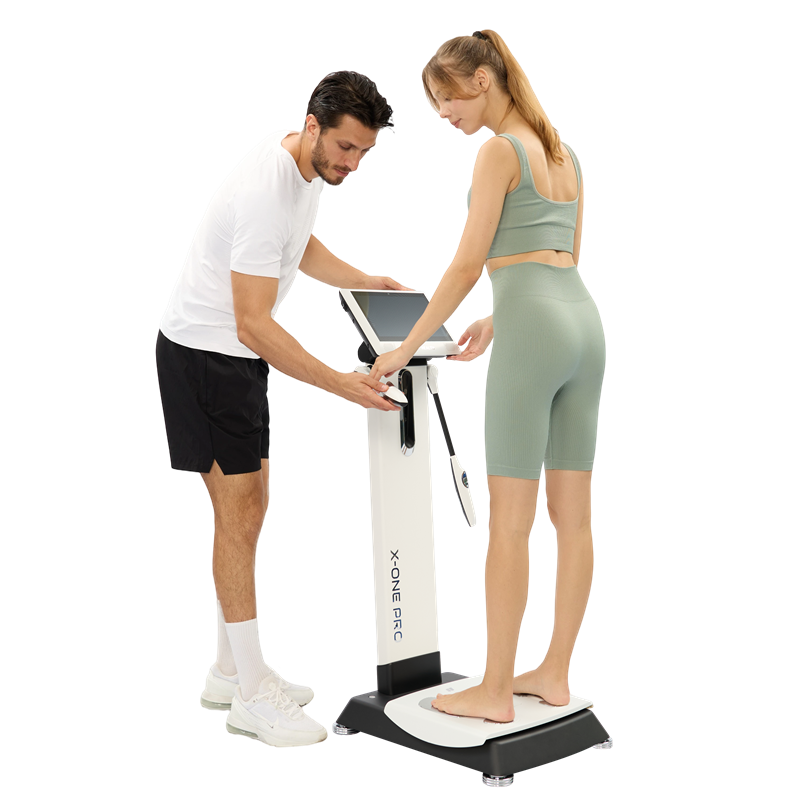Did you ever wondered what is your body actually made up of? It’s an interesting question! What a body composition test can tell you What it measures: This test assesses the percentage of fat, muscle and water in your body. But the bigger question is, how much does a body composition test cost? In this blog, we open the lid on how much some common body composition tests cost and why having one is a good idea for your health.
BIA: A test that measures how well electricity moves through your body. It shows an estimate of how much fat, muscle and water that make up your weight. The good news is that a BIA test can be performed at home with the help of some special scale which contains this feature. Alternatively, you can attend a gym or clinic and have this performed for yourself. A BIA test costs real money — usually between $20 and beyond over a hundred dollars, depending on who is doing the test and to what equipment they have access.
Measure skinfold thickness: A health care provider pinches the skin and fat under your arm in several areas of body to measure this. Which makes it easier for them to determine how much fat is subcutaneous. This test can be performed by a certified fitness professional or health care provider. The cost of a skinfold thickness measurement only ranges from $10-40 so it is quite accessible to most people.
DEXA:The gold standard of body composition testing. The top feature is the fact that it gives very precise readings for bone density, muscle mass and body fat. DEXA: it uses a little radiation to measure how x-rays of two different amounts are absorbed by your body. The precision of a DEXA test is also why they are more expensive than most scans; an estimated cost for this type of test can be anywhere from $100-$300.

So to lose weight for example — knowing your body fat percentage can give you a hint of the how much weight should be dropped… in order reach healthy number. They can also may point out imbalance in your body low muscle, high fats perception. This shows you whether your muscle is really too small or visceral fat, which is the most dangerous type of fat that covers its weight. Excess visceral fat can increase your risk of chronic diseases such as heart disease and diabetes, so it's helpful to know where you're at.

Additionally, other groups of patients have DEXA tests covered by some health insurance plans. These people may be postmenopausal women or at high risk of osteoporosis. In general, it is worth inquiring with your insurance company about whether or not they will cover a body composition test because you could learn something useful.

Additionally, certain providers may even provide additional services in unison with the test. That might also mean billing something like a consultation with nutritionist or work-out coach in addition to the test, making for an even bigger aggregate price. This makes it critical for you to go through the details of each and every one of them in order to compare their prices. That way you can search for a test based on your budget and requirements.
If you have questions about your order body composition test price be there to answer your questions immediately. Our service begins at the beginning of your inquiry. We believe that instant and efficient responses can help customers make informed decisions. Not only prior to purchase, but also in the aftermath of your payment,
We know that a happy transaction is derived through the professionalism of body composition test price. As a service-oriented company, we pay greater attention to the professionalism of our employees. Each employee has 20 hours of product training as well as 10 hours of assembly time to ensure that we can provide you with fast and accurate solutions to your product needs.
Through the establishment of extensive and comprehensive partnership with body composition test price that are listed on the stock exchange.We service more than one million users each year in more than 100 cities, medium, large, and small, across China.In 2016, with the announcement of the "Healthy China 2030", campaign. We formulated the strategy that was "IoT + Cloud Computing + Big Data" which has been cultivated in the areas of health, fitness and education in the subsequent years.
We body composition test price that applying modern technology can bring us breakthrough ideas and new products which is why we upgraded the production line and assembly process without any effort We can meet your requirements whether OEM or ODM